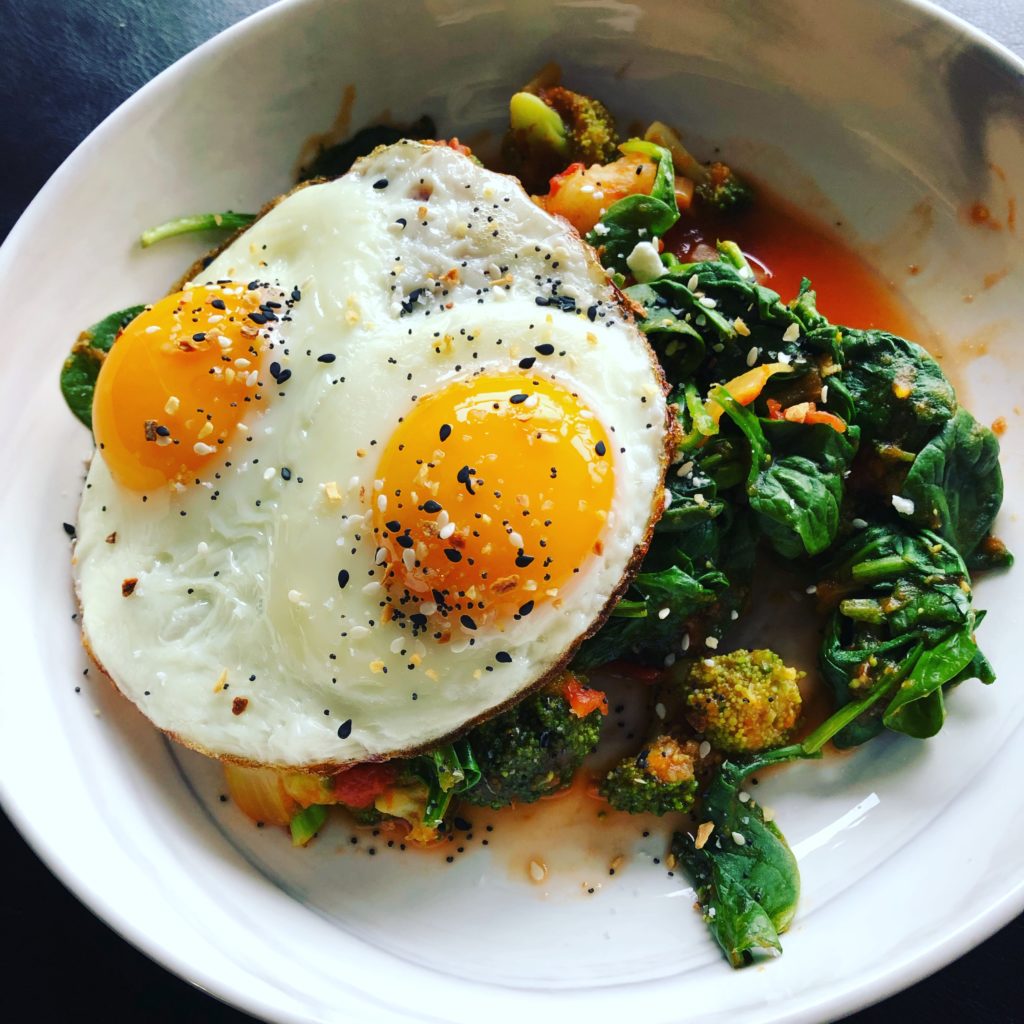There’s so much about fall which I really enjoy: the chill in the air, the sounds of fallen leaves crunching beneath my feet in the park, sweater weather, and cozy and warming fall foods. However, there’s one thing about fall I struggle with: the increased loss of daylight. Seasonal Affective Disorder (SAD) is a type of depression related to changes in the seasons. If you’re like most people with SAD, your symptoms start in the fall and continue into the winter months.
I’ve experienced SAD since before I even knew there was a word for it, so I understand how much the changes in daylight can truly affect a person. I also understand that there are certain foods which can help lessen the negative effects of SAD. No matter our physical and mental state, food plays a big role in supporting our overall well being. For those suffering specifically with SAD however, I recommend eating complex carbs, foods rich in tryptophan, potassium, folate, Vitamin D, probiotics, calcium, and omega-3s, to name a few. These foods all play very important roles in how our body produces and processes mood-regulating neurotransmitters like serotonin and dopamine.
I talk at length about why I recommend these foods in this podcast episode, and I also get a lot more into it these two articles how these nutrients work, if you’re curious to learn more: how to help prevent and treat SAD and which foods can help fight off the effects of SAD, including a one-day anti-SAD diet.
Some of my favorite SAD-fighting foods include:
-Oats are rich in slow-burning complex carbs, as well as tryptophan and vitamin B6 to support efficient serotonin production.
-Sweet potatoes, which provide antioxidant vitamins A and C and beta-carotene to support immune system function. They’re also a good source of complex carbs.
-Dark leafy greens are packed with key vitamins and minerals and are a great source of folate, a nutrient that’s associated with stable levels of pleasure-inducing brain chemical dopamine.
-Legumes such as beans, peas, and lentils, all of which are packed with fiber and plant protein, are also good sources of tryptophan and folate.
-Bananas, a source of complex-carbs that also contain tryptophan, vitamin B6, and potassium.
-Probiotics found in yogurt, kefir, kimchi, miso, sauerkraut, kombucha tea, and other fermented foods, support healthy digestion and immune system function as well as clear gut-brain communication.
-Healthy fats as found in olive oil, avocado, nuts, and seeds are important for stable blood sugar and energy. Choline found in egg yolks is a nutrient that’s essential for healthy brain function.
-Dark chocolate is packed with flavonols, which have been noted for their anti-inflammatory benefits and potential to improve mood.
